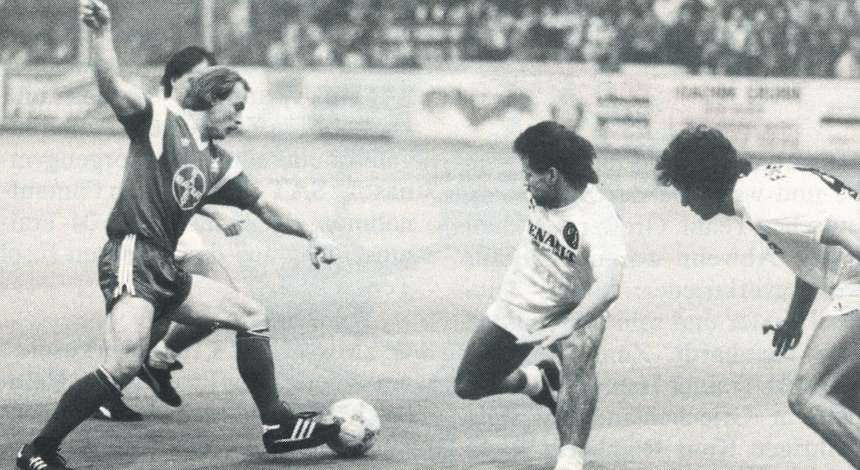
Preparations for the Rückrunde also involve a training camp in Tenerife. However, the first two weeks start with indoor football, which is really popular in the 80s and 90s. The shindig involves 18 tournaments when the teams were able to qualify for the finals that saw the first DFB Indoor Cup (also called the Hall Masters). The big finals tournament is held in Frankfurt. Every club has to have played in at least two tournaments. A complicated system saw eight teams qualify for the DFB Indoor Cup.
So-called assessment points determine qualification with final places and points from the last three seasons plus the first half of the current campaign are taken into account. The individual tournaments are given a values rating, which in turn depends on the assessment of the participants and individual tournaments. Winners and finishers were awarded place points. The total of all the numbers produce the final points tally, which is reflected in the table. From those, five other teams qualify alongside the hosts Eintracht Frankfurt. Ten Bundesliga teams have already ruled out participation in the DFB Indoor Cup as they prefer training camps in preparation for the Rückrunde.
Bayer 04 take part in three tournaments – in Hanover, Dortmund and Herne. Although the tournament in Hanover was not recognised as a qualifying tournament the Hall Masters.
The team set off for Hannover and Herne on Friday 15 January 1988. The team fail completely in Herne on that Friday losing all three group matches against DSC Wanne-Eickel (1-2), Westfalia Herne (1-2) and Hamburg SV (2-3). The other but the team in Hanover do not do much better – 2-2 against TSV Havelse, 0-0 against Hannover 96 (Reserves) and a 4-1 win against ASC Nienburg. Saturday sees the two 'indoor specialists' Knut Reinhardt and the second team player Dieter Regh arrive in Herne from Hanover to give the team support in the important tournament. That is the play-offs, the quarter-finals for us against the top team from the other group, in this case Rot-Weiss Essen. We inflict a 5-1 defeat on Essen. The semi-final brings revenge against Hamburg SV with a 3-2 victory but then we lost 6-3 to Wattenscheid 09 in the final. The team in Hanover finishes in a disappointing fourth place.
The tournament in Dortmund follows a week later. Again we reach the final but suffer a heavy 5-2 defeat to VfL Bochum. At the end of the day, the two second places are not enough to qualify for the DFB Indoor Cup. Preparations for the Rückrunde, and obviously the UEFA Cup quarter-final against Barcelona, begin with a flight to Tenerife on 25 January.
Related News
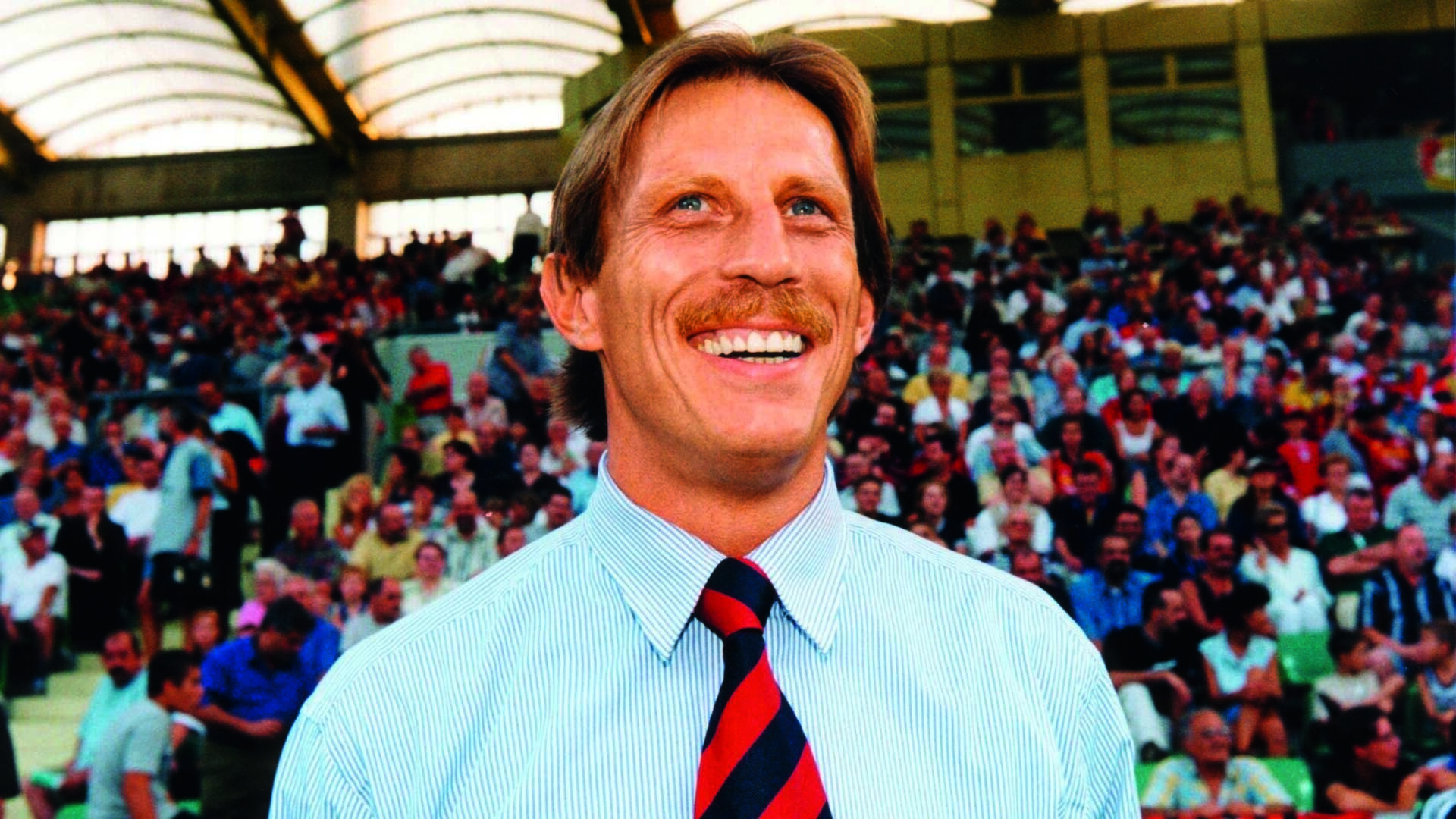
Legend: Christoph Daum - The man who taught us to want
Christoph Daum was born on 24 October 1953 in Zwickau. As a child, he moved to West Germany with his mother and grew up in Duisburg. He developed a great enthusiasm for football at an early age, even though it soon became clear that his future lay less on the pitch than on the sidelines. Even at a young age, his passion for analysing, explaining and improving things became apparent.
Show more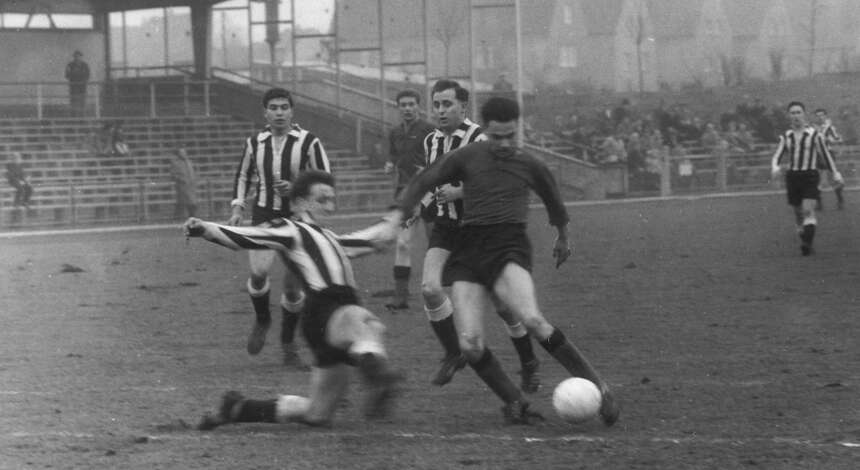
From the archives: 65 years ago - Another victory at last
When the Bayer 04 players celebrated Christmas in 1960, they spent the winter in second place in the Oberliga West 2 on 20 points - but already five points behind leaders Schwarz-Weiß Essen. However, coach Erich Garske's team are struggling to get back on track in the new year. A goalless draw against Bonner FV at home at the Ulrich Haberland Stadium was followed by a 2-1 away defeat in Erkenschwick. The following home game also yielded just one point. As a result, the team's promotion ambitions dwindled to a minimum, as the gap to the coveted spot has now grown to a challenging ten points.
Show more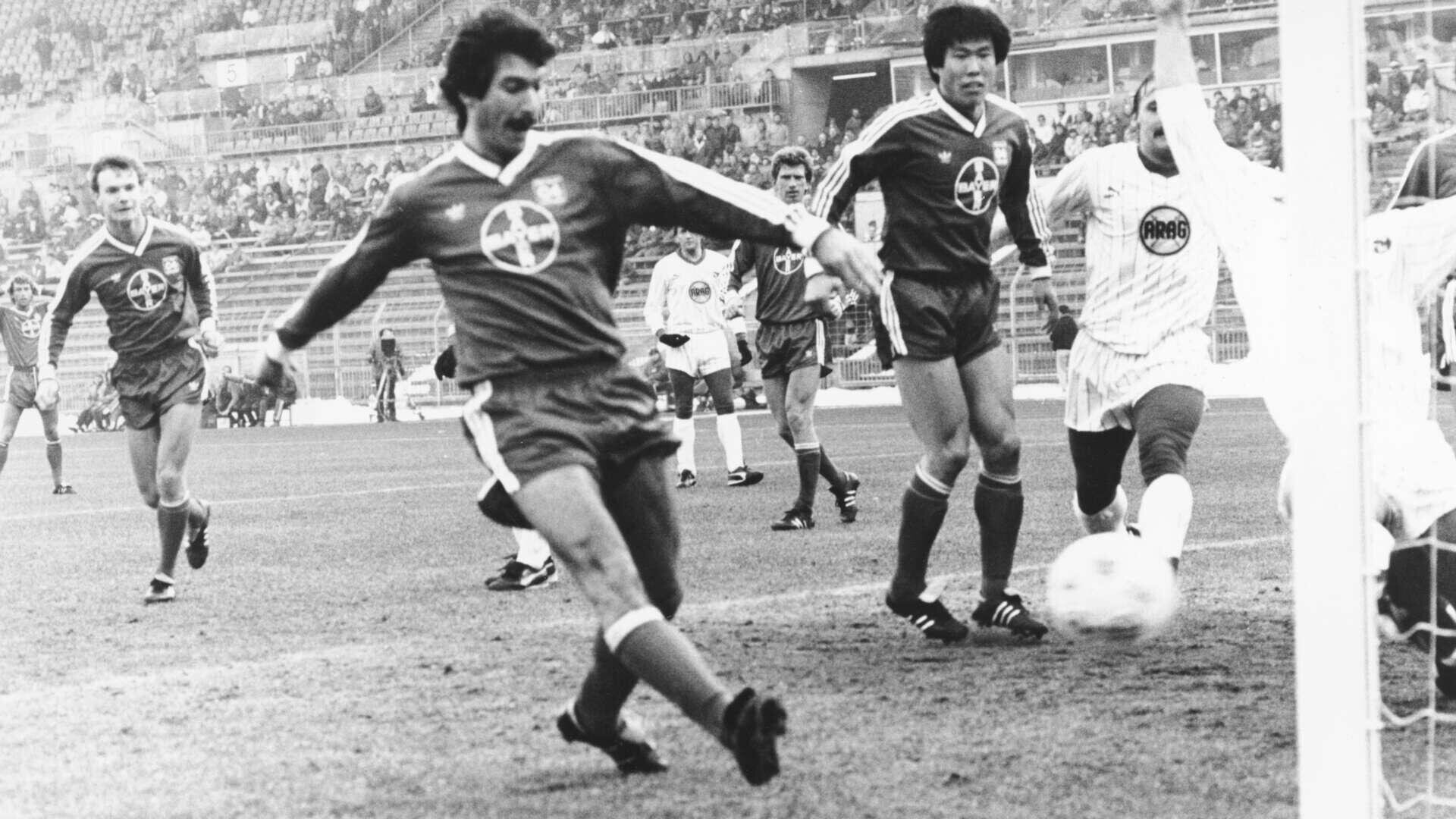
Goals of the month: From Waas to Tapsoba
In this video you can see impressive and important goals in Bayer 04 history from the month of February. It's not always about the beauty of the goals, but also a reminder of special games and players.
Show more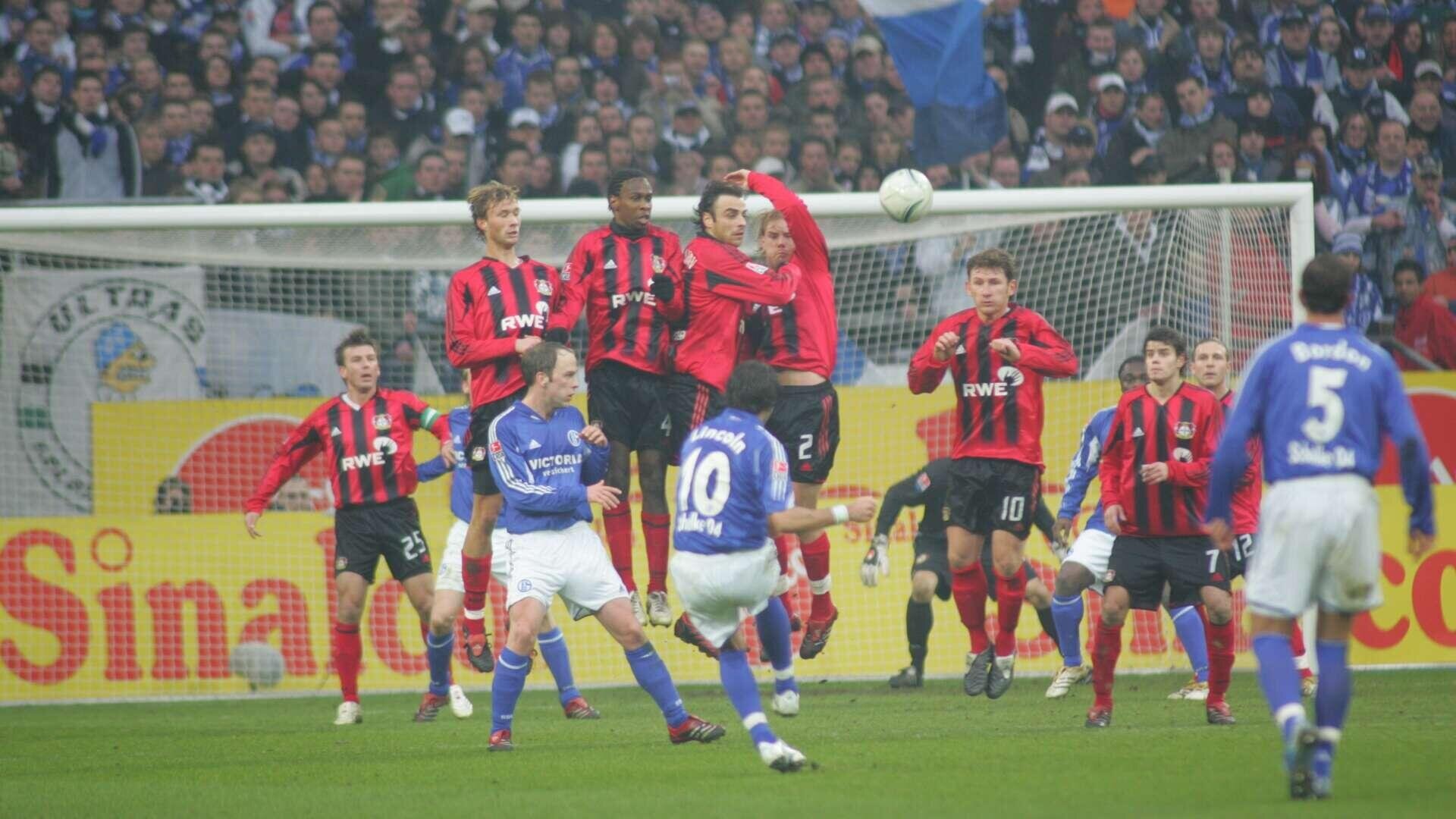
Match of the month: 20 years ago - A game of goals galore
It is 11 February 2006 and Schalke 04 and the Werkself kick off at 3.30 p.m. in a match that ends up being historic - at least from a Bayer 04 perspective.
Show more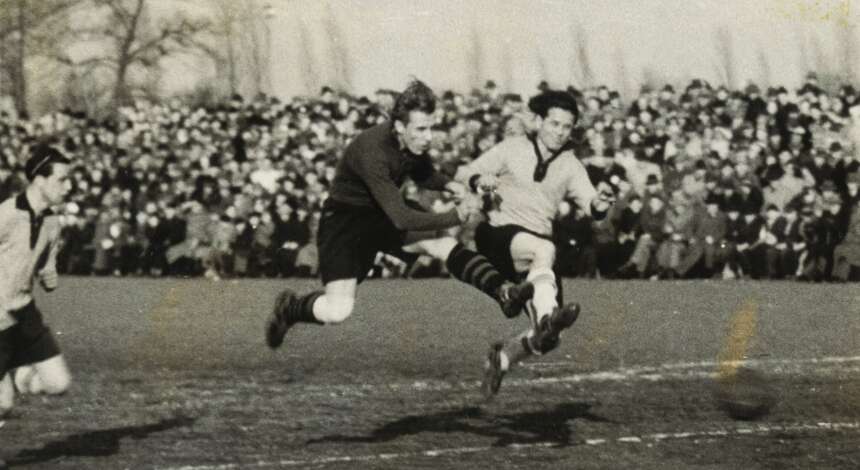
History: 75 years ago - The 1950/51 season (February)
As league leaders, the Werkself welcomed the relegation-threatened team from Rhenania Würselen. On 4 February 1951, 5,000 spectators line the touchlines despite the Sunday carnival parades. And they see a home team that is superior on the pitch. Without Theo Kirchberg, who was ill, and Emil Becks, who was suspended, the hosts attacked the opposing goal from the start. Battling against a strong wind in the first half, Bayer 04 created chance after chance, but were repeatedly thwarted by the Würselen goalkeeper. With the score at 0-0 at half-time, Karl Heinz Spikofski tried his luck on 55 minutes and hammered the ball into the opposition net from 20 metres out. Rhenania can no longer counterattack. The siege of the Würselen penalty area continued right to the end, but the game ended in a narrow 1-0 win.
Show more